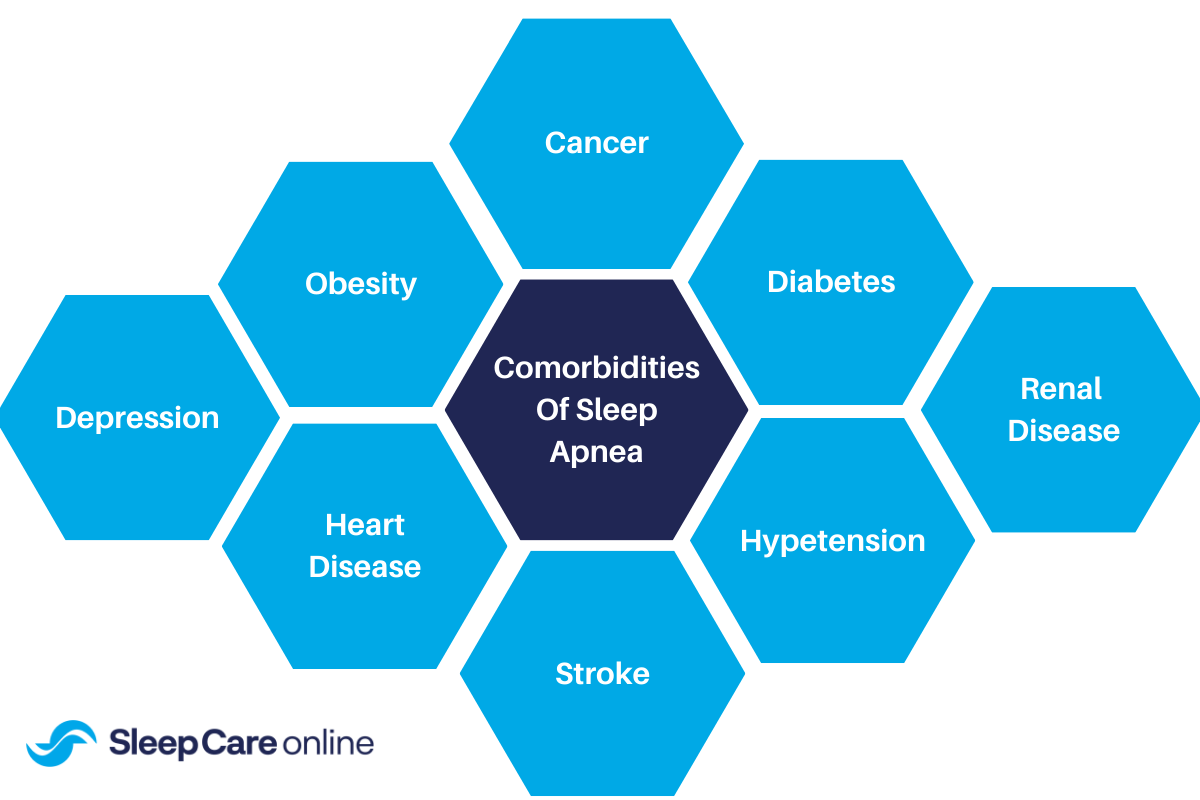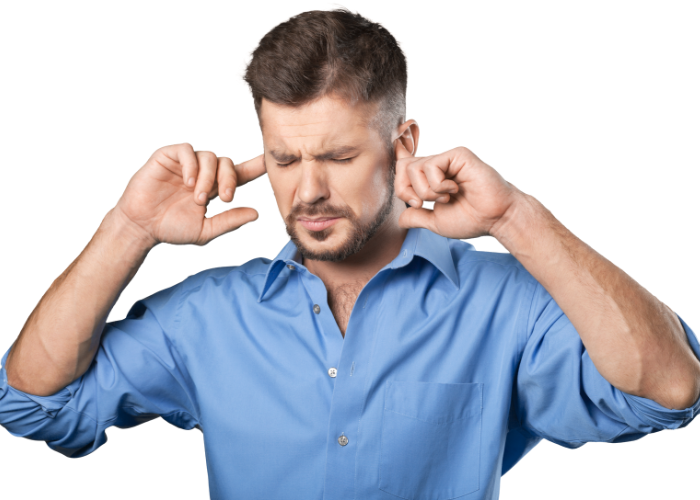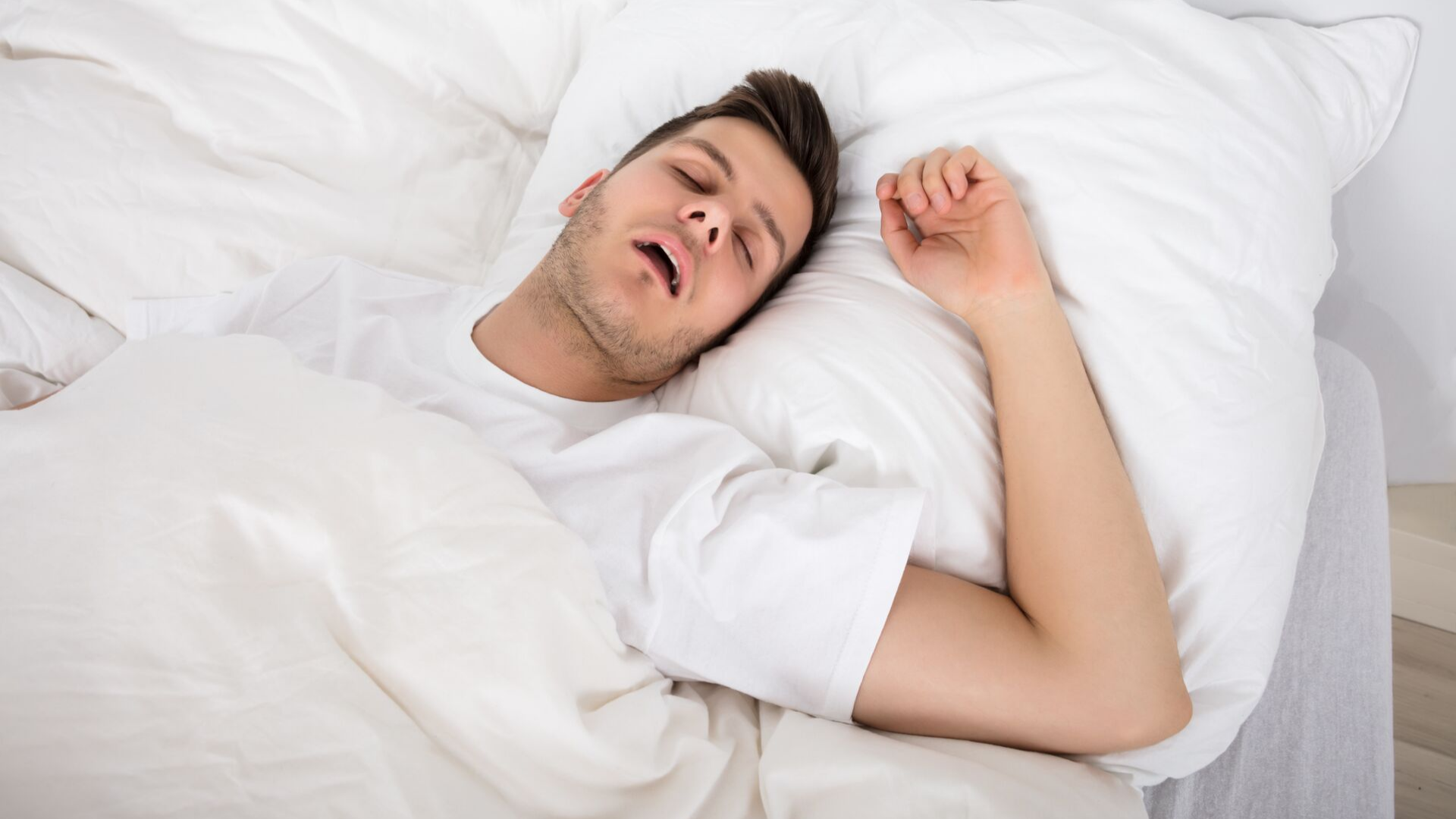Medical Disclaimer: This article is for informational purposes only and should not replace professional medical advice. If you suspect you have sleep apnea or tinnitus, consult a healthcare professional.
Can sleep apnea cause hair loss? This is a common question many individuals ask their doctors, especially those experiencing both conditions. While it might seem like a connection between a sleeping disorder and your scalp is far-fetched, a closer look at the body’s internal systems reveals a surprising and complex link. Hair follicles, like all cells, rely heavily on a stable internal environment to grow, and anything that disrupts this balance—such as the chronic oxygen deprivation and stress caused by Obstructive Sleep Apnea (OSA)—can trigger excessive shedding.
Emerging research suggests that the stress of consistently poor rest does, in fact, negatively affect your hair health. Specifically, how sleep affects hair is through the regulation of stress hormones like cortisol, which are thrown into chaos by repeated awakenings. So, does sleep apnea cause hair loss directly? Not always, but it is certainly a major contributing factor. Understanding this correlation between sleep apnea and hair loss is the first step toward effective treatment. Furthermore, even the gold-standard treatment, Continuous Positive Airway Pressure (CPAP) therapy, raises concerns about CPAP and hair loss due to mechanical factors. We’ll dive into the physiological mechanisms to determine precisely how sleep apnea can cause hair loss and what you can do about it.
How Poor Sleep Quality Exacerbates Hair Thinning
The hair growth cycle—Anagen (growth), Catagen (transition), and Telogen (resting/shedding)—is a tightly regulated biological process. When your body is subjected to significant physical or emotional stress, a large number of growing hairs can prematurely shift into the resting phase (Telogen). This condition is known as Telogen Effluvium, and it is the most common form of stress-induced hair loss.
Stress Hormones and Telogen Effluvium
The defining feature of Obstructive Sleep Apnea is the repetitive cessation of breathing, which causes micro-arousals (brief awakenings) dozens or even hundreds of times per night. These events signal danger to the body, flooding your system with stress hormones like adrenaline and cortisol.
Chronic, elevated levels of cortisol are inflammatory and toxic to the hair follicle environment. This constant state of ‘fight or flight’ due to sleep fragmentation interrupts the body’s natural circadian rhythm, severely impacting the hormone balance crucial for hair health. If you are constantly wondering, “does sleep affect hair growth and thickness?”, the answer is a resounding yes—disruptions from OSA create the perfect internal environment to trigger widespread hair shedding, which often presents as generalized thinning across the scalp.
The Role of Intermittent Hypoxia in Hair Loss
Beyond stress, the most critical physiological disruption caused by OSA is intermittent hypoxia—the repeated drops in blood oxygen levels. The delicate cells within the hair follicle require a steady, abundant supply of oxygen and nutrients to sustain the lengthy Anagen (growth) phase. When oxygen saturation repeatedly plummets throughout the night, it induces systemic oxidative stress.
This lack of steady oxygenation can directly starve the follicle. Researchers theorize that this strain may slow cellular turnover and impair the production of crucial growth factors, leading to weaker hair and potentially hastening the transition into the shedding phase. This is one of the key biological pathways that addresses how can sleep apnea cause hair loss by compromising systemic health.
Exploring the Link Between Sleep Apnea and Hair Loss Conditions
The connection between inadequate rest and hair shedding is not just theoretical; it’s supported by findings that link sleep disorders to specific forms of hair loss, particularly in individuals who are already genetically predisposed.
Sleep Apnea and Autoimmune Alopecia
One of the most documented connections exists between sleep disturbances and Alopecia Areata (AA), a condition where the body’s immune system mistakenly attacks its own hair follicles, leading to patchy baldness. Multiple studies suggest a bidirectional association between AA and sleep disorders, including OSA. This means that people with AA are at a higher risk for developing OSA, and conversely, those with chronic sleep disorders are more likely to develop AA. The common link here is the elevated systemic inflammation and immune system dysregulation caused by poor sleep quality. When considering sleep apnea and hair loss, the inflammation driven by untreated OSA may be the spark that ignites an autoimmune response in susceptible individuals (Wang et al., 2022).
Worsening Hereditary Hair Loss
For men and women with a genetic predisposition to pattern baldness (Androgenetic Alopecia), sleep deprivation and intermittent hypoxia from OSA can act as an accelerant. The physiological stress associated with poor sleep can amplify the effects of the underlying genetic sensitivity to hormones, potentially accelerating the timeline for male or female pattern hair loss.
One study investigating the relationship between OSA and Male Pattern Baldness (MPB) found that while OSA did not have a strong link to MPB in men without a family history of hair loss, those who had both OSA and a family history showed a significantly higher risk for developing MPB. This suggests that the bodily strain of OSA acts as a catalyst, pushing genetically susceptible hair follicles past their breaking point and providing a strong answer to does sleep apnea cause hair loss in this subset of the population. The proposed mechanism involves intermittent hypoxemia from OSA affecting iron metabolism—specifically lowering transferrin saturation levels, which may contribute to hair loss.
Addressing the Problem: CPAP Therapy, Hair Health, and the Mask Factor
If untreated OSA is contributing to your hair shedding, the most effective solution is to treat the underlying respiratory disorder. Continuous Positive Airway Pressure (CPAP) therapy is the gold standard for OSA, and for many users, resolving their breathing issues leads to positive systemic improvements—including, potentially, better hair health.
The Positive Impact of CPAP on Systemic Health
By maintaining an open airway, CPAP therapy eliminates intermittent hypoxia, stabilizes blood oxygen levels, and significantly reduces the nightly release of cortisol and adrenaline. This stabilization decreases systemic inflammation and restores the body’s ability to regulate its hormones and growth factors, creating a more favorable environment for the hair growth cycle. In these cases, consistent use of CPAP therapy may lead to a reversal of Telogen Effluvium and an improvement in hair density. The relationship between CPAP and hair loss here is positive: treating the root cause often alleviates the symptom. To begin this treatment, you will first need a CPAP prescription from a medical professional.
The Mechanical Challenge: Friction and Traction Alopecia
However, some users report a different side effect: hair loss localized around the area where the mask straps contact the head. This form of shedding is not related to the physiological effects of OSA, but rather to the mechanical pressure and friction from the headgear, a condition known as Traction Alopecia.
This is the primary reason why concerns about CPAP and hair loss persist. The constant rubbing and tension can cause hair breakage and, over time, damage the hair follicles in the specific areas contacted by the mask straps. This is especially true if the mask is overtightened to achieve a better seal, or if you use a cotton pillowcase, which creates more friction than silk or satin. Adjusting your sleep apnea pillow can also help to alleviate pressure points and minimize rubbing during the night.
Taking the Next Step: Diagnosis and Treatment for Better Health
If you are experiencing unexplained hair loss alongside symptoms like chronic fatigue, loud snoring, or waking up gasping for air, it is crucial to investigate whether can sleep apnea cause hair loss in your specific situation. Hair loss is complex, but eliminating a major systemic stressor like OSA is a powerful step toward overall wellness.
The first step is a medical consultation, followed by a sleep study. Many patients qualify for a convenient option: a home sleep apnea test. This allows for the diagnosis of Obstructive Sleep Apnea quickly and accurately, from the comfort of your own bed. By focusing on treating the underlying sleep disorder, you address the hormonal chaos and oxidative stress that may be compromising your hair health and perpetuating the shedding cycle.
Practical Tips for CPAP Users with Hair Concerns
- Use Protective Accessories: Employ satin headgear wrappers, CPAP mask liners, or a hair bonnet to create a friction-reducing barrier between the straps and your hair.
- Adjust the Fit: Ensure the mask is snug enough for a seal, but not so tight that it creates excessive tension on the scalp.
- Choose the Right Mask: Smaller masks (like nasal pillows) often require less headgear than full-face masks, minimizing contact with hair.
Conclusion
The link between sleep apnea and hair loss is not a myth, but a nuanced connection rooted in physiological responses to stress. While OSA may not be the direct cause of all hair thinning, the repeated cycles of oxygen deprivation and cortisol release create an inflammatory, high-stress environment that can trigger Telogen Effluvium, worsen hereditary balding, and potentially exacerbate autoimmune conditions like Alopecia Areata. By successfully treating OSA with CPAP therapy, you address the root cause of this systemic imbalance. Don’t let chronic sleep deprivation compromise your health and appearance. By prioritizing restorative sleep, you can stop the stress-induced shedding cycle and take a critical step toward reclaiming your overall vitality.
Frequently Asked Questions
-
Does sleep affect hair regrowth?
Yes, absolutely. The hair follicle, particularly during its active growth phase (Anagen), is highly dependent on a balanced hormonal environment and robust blood flow. Since adequate, deep sleep is when the body conducts most of its repair and hormone regulation, consistent, quality rest is vital for facilitating hair regrowth and maintaining overall hair cycle integrity. The question of how does sleep affect hair is central to trichology (the study of hair and scalp health).
-
Does severe sleep deprivation cause permanent hair loss?
Sleep deprivation, even if severe, typically leads to temporary hair loss conditions like Telogen Effluvium. This condition is usually reversible once the underlying stressor—in this case, poor sleep or untreated OSA—is effectively addressed. However, if chronic stress and inflammation from sleep deprivation worsen an existing condition, such as Androgenetic Alopecia or Alopecia Areata, the resulting hair loss may become permanent in those areas.
-
Will treating my sleep apnea stop my hair from falling out?
While CPAP therapy is not a guaranteed cure for all hair loss (as other factors like genetics or thyroid issues may be involved), it can significantly reduce shedding if your hair loss is related to the systemic stress, inflammation, and hypoxia of OSA. By normalizing your oxygen and hormone levels, you eliminate a major physical stressor, allowing the hair follicles to exit the resting/shedding phase and potentially re-enter the growth phase.
Verified Sources
- Wang, C. F., Chen, S. Y., & Fan, M. Y. (2022). Two-way association between alopecia areata and sleep disorders: A systematic review of observational studies. Frontiers in Endocrinology, 13, 950854. https://pubmed.ncbi.nlm.nih.gov/36582873/
- Choi, J. M., Lee, Y. B., Park, S. M., Kim, H. G., & Lee, W. S. (2018). Obstructive sleep apnea, low transferrin saturation levels, and male-pattern baldness. Sleep and Breathing, 22(1), 181-187. https://pubmed.ncbi.nlm.nih.gov/30144036/

Dr. Kunal Agarwal is a highly accomplished board-certified physician specializing in Family Medicine, Sleep Medicine, and Obesity Medicine. He completed his residency at Michigan State University and a fellowship at Henry Ford Health System, and has over a decade of experience delivering exceptional patient outcomes. Dr. Argarwal is passionate about patient education and advocacy, sleep disorders, and more. His expertise in treating sleep apnea is extremely valuable to improve his patients’ lives.
Awards, Honors, & Recognition
Top Doctor
SRQ Magazine and Sarasota Magazine, 2023-2024
Fellow of American Academy of Sleep Medicine (FAASM)
American Academy of Sleep Medicine, 2021
Named “Top Doctor” for 2017, 2018 (on cover), 2019,and 2020 by Delaware Today Magazine
2017-2020





